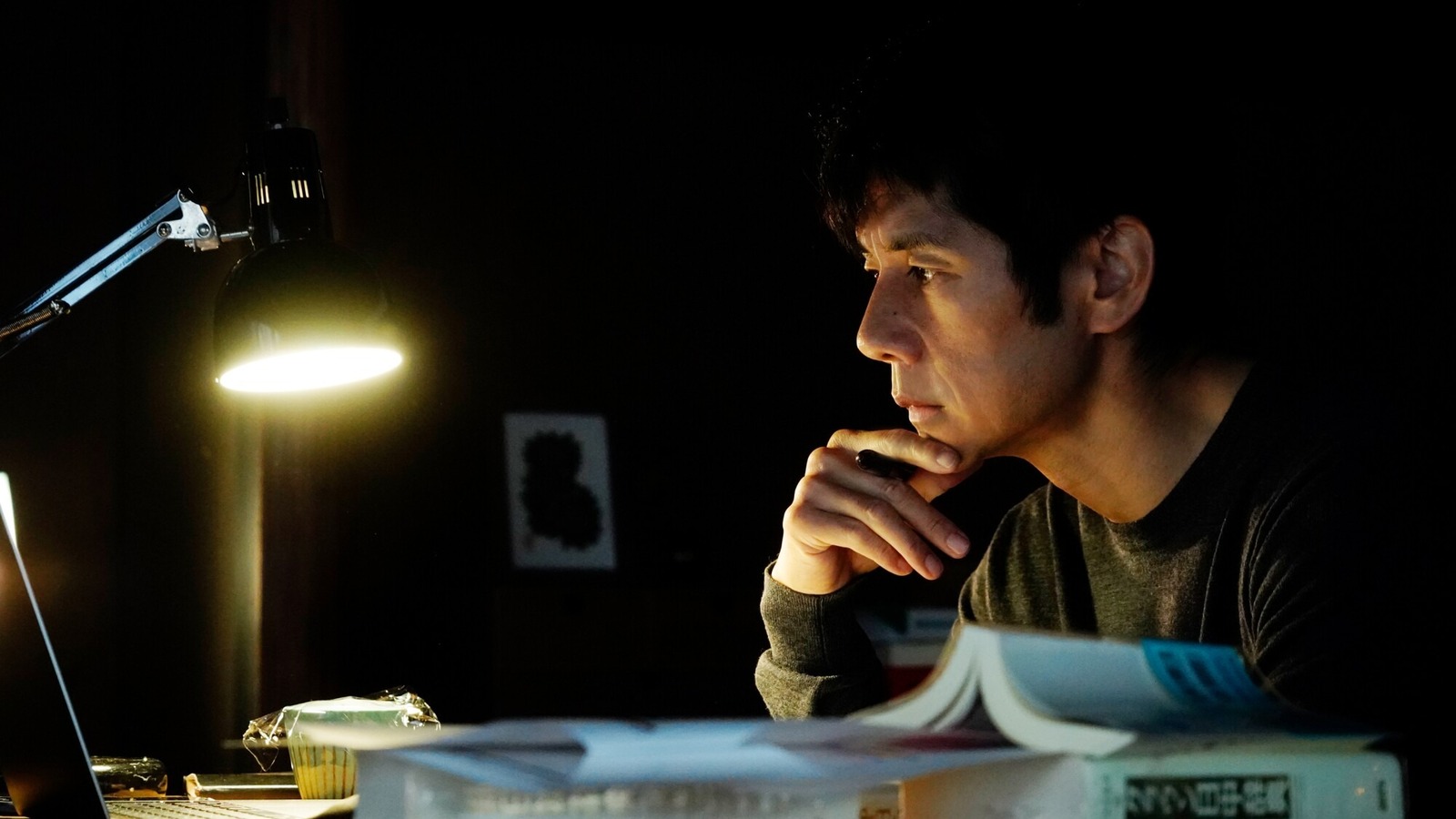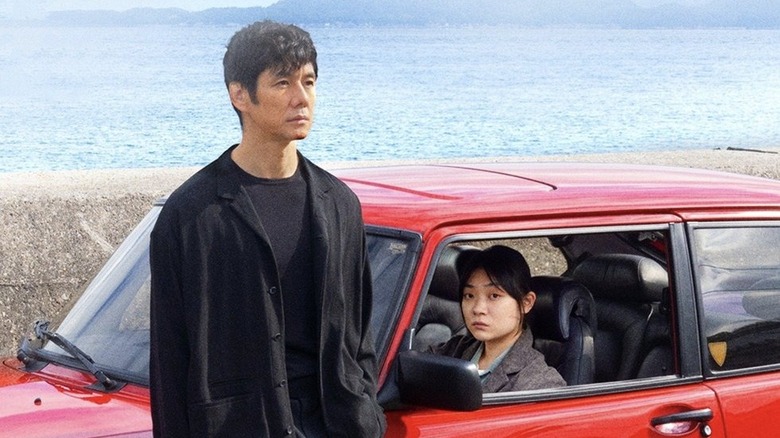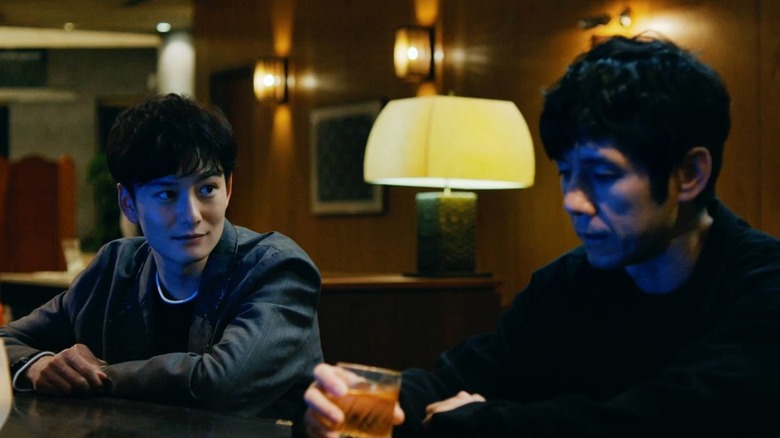Drive My Car is a fascinating tribute to the healing power of art
(Welcome to The daily streaman ongoing series in which the /Film team shares what they watched, why it’s worth watching, and where you can stream it.)
The film: “Driving My Car”
Where you can stream it: HBO Max
The pitch: Actor and theater director Yusuke Kafuku (Hidetoshi Nishijima) and his screenwriter wife Oto (Reika Kirishima) seem like the perfect couple, albeit with a weird post-coital ritual. After having sex, Oto enters a trance-like state and tells her husband surreal and seedy stories, which he then repeats to her in the morning for his scripts. But Yusuke soon discovers that he is not the only one having this ritual with his wife. Arriving home early from a business trip, he sees her tangled up with another man and quietly leaves, shocked at what he has seen. But before he can confront her about his affair, Oto dies of a sudden brain hemorrhage.
Cut to two years later, Yusuke took on the job of directing a new staging of a play he made famous, a multilingual production of Anton Chekhov’s “Uncle Vanya.” He adopted a new, much more morbid ritual: listening to the tapes his wife made for him many years ago to help him memorize his dialogue, and reciting the opposite lines in his dead wife’s voice. But his ritual is interrupted when he is assigned to a female driver, Misaki (a quietly exceptional Tōko Miura), a stoic young woman struggling with her own demons. On top of that, while auditioning actors for the play, Yusuke meets the very man his wife was having an affair with (a creepy Masaki Okada). But rather than being a recipe for disaster (or at least a little drama) as one might expect under these circumstances, “Drive My Car” takes Yusuke in an unexpected direction: on the road to recovery.
Why watching is essential
“Drive My Car” is notable for several reasons: it’s a surprisingly humanistic take on Haruki Murakami, whose short story of the same name serves as the inspiration for the film; it is a rare depiction of a deep and transformative platonic relationship; and of course, it’s three hours long – a length that flies by thanks to laid-back narration and compelling direction from Ryusuke Hamaguchi. But perhaps most remarkable is how “Drive My Car” describes so honestly and nakedly how art can connect and heal even the most different souls.
The art is how Yusuke and his wife Oto have bonded, swapping surreal stories while tangled in the sheets together, bringing them together in a liminal space that feels both of this world and not. The art is how Yusuke is betrayed by Oto, who was apparently looking for creative inspiration elsewhere and in bonding with other men. Art is what brings Yusuke closer to Misaki, a wounded soul who never really enjoyed acting. Art is what brings together foreigners who would be thrown into Yusuke’s play – through a unique multilingual production of a Chekhov play in which they would all speak their own language (Japanese, Korean, Chinese, sign language) without have to understand others. But through art they understand each other, at least on some level.
Everyone is a stage
There is a scene in the second half of “Drive My Car” in which two of the actresses from Yusuke’s play rehearse their scene together outside, Yusuke having decided to change the scenery after spending months doing readings. robotic tables inside. Suddenly, something invades them both. One of the other actors moves as if to do something, but Yusuke stops him – “they found him”, he says. The two women act out the scene with increasing intensity, speaking in their respective languages, but that barrier that once separated them – of rigid repetition and non-comprehension – has disappeared. It’s almost as if they weren’t playing anymore, but just talking to each other, person to person. Chekhov’s words come out of their mouths, but something much deeper and more tender plays out in their actions with each other. They hug and cry, coming out a little shaken, as if possessed by something other than themselves. But at the same time, it feels like the most honest and clear moment in the movie so far.
Hamaguchi has always had a knack for plotting characters and storytelling through dialogue, which makes the conceit of “Drive My Car” so intriguing to him. The characters must overcome the seemingly most impossible obstacle – language – but by repeating the story of a deceased Russian playwright, they achieve a closeness they might not otherwise have achieved. Aren’t we all repeating words and phrases put in our mouths? The “hello”, “how are you”, the “hello”. Courtesy, especially in Japan, can be the biggest barrier between people, and we see how “Drive My Car” destroys that.
At the same time, these barriers sometimes exist for a reason, as we see in the case of the cryptic Kōji (Masaki Okada), the man with whom Yusuke’s wife had an affair. There’s an inscrutable darkness to him that Yusuke soon discovers while working with him on the piece, and it’s a darkness that runs through some of the warmest stories of the people we meet. And of course, there’s Misaki, who carries with her a bitter burden that Yusuke helps unload, while she in turn helps him unravel the mysteries of his dead wife. They all come together to form a rich tapestry of people’s lives, some loving, some tender, some fragmented, some hopelessly lost. It’s part of the beauty of “Drive My Car,” that art can bring all of these people together and fix some while exposing others – but connecting them all the same.




Comments are closed.